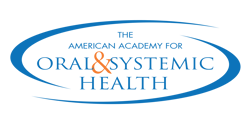How to Become & Stay Healthy
Each year at our Scientific Sessions, AAOSH arranges for discounted health screenings: CIMT, BioPhotonic scans, OralDNA bacterial testing, CRP, and A1c. In an effort to promote total health and wellness among our group, we celebrate the healthiest AAOSH member by inviting the person who gets the best cumulative results to our next Scientific Session free of charge.
Last year’s healthiest member was none other than Dr. Ellie Phillips. Ellie is a champion of health and wellness and has been involved with AAOSH since its founding meeting. We recently asked her to share her secrets for staying healthy with the AAOSH community, so we can all learn from her outstanding efforts.
Imagine if we all knew exactly how to become—and stay—healthy.
Scientific studies give us clues, but I never miss an opportunity to question someone who has achieved ultimate fitness or longevity. This is why, when AAOSH asked me to write about how to become and stay healthy, I began to reflect on my own life. As an adult, I have enjoyed systemic and dental health without a single sick day or the need for dental treatment.
I was a baby boomer in Europe but my childhood was definitely not healthy. Antibiotics were rare in the UK at this time, and sick kids wheezed their way through years of bronchitis, fevers, and illnesses that are avoided or curtailed today. Perhaps this fight for survival was important—who knows?
In my teens, I was part of the hippie culture that believed in eating muesli, drinking carrot juice and the benefits of yoga. We danced to the music of the Beatles as life evolved into a whirlwind of family commitment and dental practice. I may have forgotten how to dance the Twist, but I still believe in the value of nutritious, whole foods.
When I talk with older people who are healthy, it appears nutrition and exercise are part of every conversation. There are so many authorities on these subjects, and specific routines may not necessarily suit everyone. We must tailor advice to individual needs with careful assessment. Personalized medicine and dentistry should strive to do the same.
Stressing about food seems wrong, and I believe eating will always be healthier when it is for pleasure. I try to include veggies at most meals and follow an alkaline diet, eating for one’s blood type, and with an understanding of the grain-brain philosophy. There are many books on nutrition and plenty of science to digest. High-intensity interval training seems to top the list of exercises for telomere protection, the goal of anti-aging. The problem is that I often find high-intensity training stressful, and some experts argue that distance running is best for brain health. Perhaps we should mix things up and simply try to make exercise part of a joyful-living strategy.
So I conclude that if we want to become and stay healthy, we must make conscientious and wise choices that are tailored to our individual preferences and needs. However, most important is the fact that an unhealthy mouth can easily compromise a healthy body. Oral pathogens damage anybody—even those who work out and eat good food. This is why oral health must be central to the development and sustainability of ultimate general health.
Thank you, AAOSH, for your dedication to the cause of Oral-Systemic Health. Let’s take our message to the world!
Resources:
- The Acid-Alkaline Diet for Optimum Health – Christopher Vasey N.D.
- Grain Brain - David Perlmutter M.D.
- Eat Right For Your Type - Dr. Peter J’D’Adamo
- The 12-minute fitness revolution - Al Sears.
